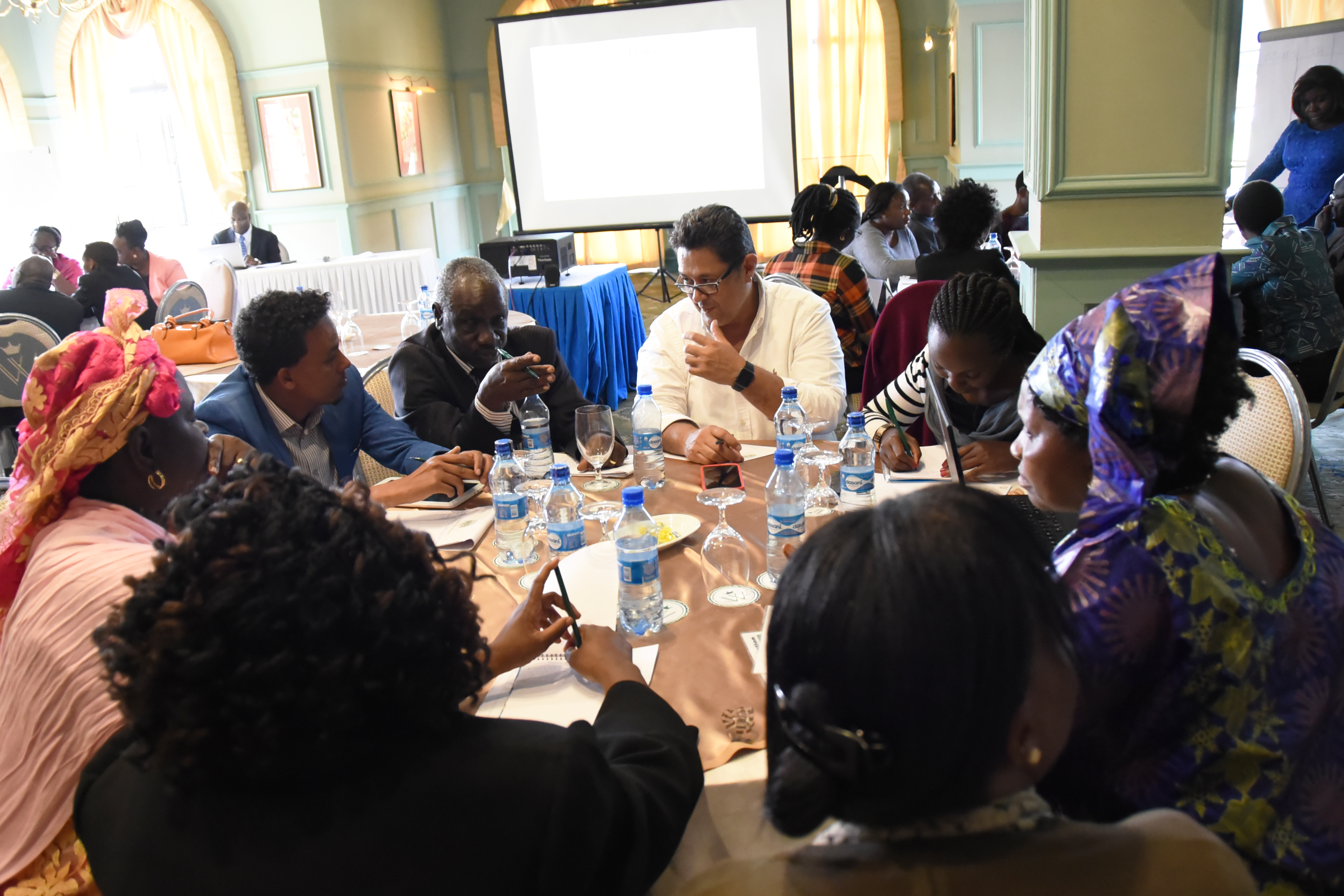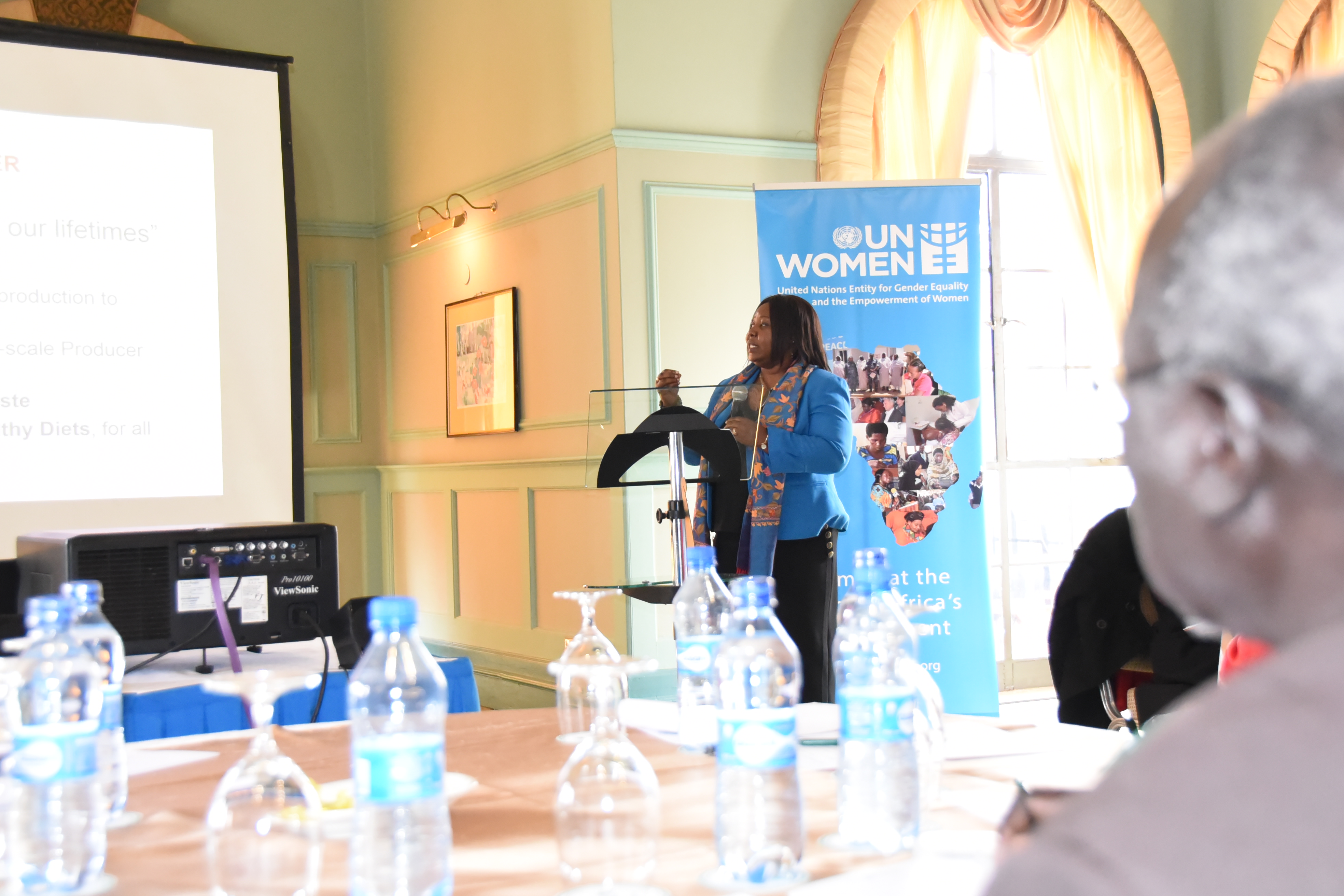Transformational leadership for women and youth in agribusiness is essential for sustainable development
On 20th June 2017, policymakers and other major stakeholders in the agriculture sector from sub-Sahara Africa convened in Nairobi to discuss the challenges faced by women and youth in agribusiness as well as to develop innovative strategies to improve their productivity in the sector.Date:
Agriculture in Africa provides an estimated two-thirds of the population with employment and contributes up to a quarter of GDP. About 80 percent of the workforce in the sector are women and girls yet they do not have equal access to opportunities for agricultural transformation as their male counterparts. There is an untapped potential in agriculture to help reduce poverty, create jobs, and establish food security. This requires a guiding framework in agriculture and a strategy for women and youth engaged in agribusiness activities in their respective regions.
UN Women has been active in empowering women in agribusiness through strategic regional partnerships and mobilizing resources for trainings in transformational leadership for women farmers all across Africa.

Participants discuss technology’s role in empowering women and youth in agribusiness| Photo Credit: UN Women, Cody Harder
The policy dialogue included three primary objectives: to identify the main challenges and opportunities experienced by women and youth in agribusiness, review the current policy environment in which women operate in the sector, as well as the successes and existing opportunities; and to develop a road map for women and youth in agribusiness that addresses issues of financing while incorporating the use of relevant technology.
In her opening remarks, Elisabeth Atyang-Eilor, UNDP Regional Service Centre Gender Advisor and Regional Manager for the Economic Empowerment of Women, laid the foundation for the day’s dialogue session by providing the context and background of women and youth in agriculture while highlighting the importance of all participants in the sector for economic development. “For the agriculture sector to thrive and be the backbone of our economies, there is no way to leave women out of the growth on the continent.” She went on to discuss how there needs to be a cross-sectorial approach to tackling the issues and not just a single focus on the agriculture sector itself.

Head of Gender, FAO Regional Office for Africa, Tacko Ndiaye, talks about the transformational journey| Photo Credit: UN Women, Cody Harder
Participants brainstormed on different types of technology accessible to women and youth in order to help increase their business capacities and how to overcome technical and financial challenges related to the use and procurement of such equipment. In addition, the various stakeholders in agribusiness were determined and represented key access points for women farmers and industry leaders to boost the sector’s productivity through positive relationships and collaboration.
The outputs of the dialogue are being used as a planning tool for short and medium term measures necessary to improve the performance of women and youth in agribusiness.